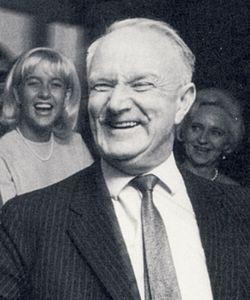| |||||||||||||||||||||||||||||||||||||||||||||||||||||||||||||||||||||||||||
All 233 seats in the Andra kammaren of the Riksdag 117 seats needed for a majority | |||||||||||||||||||||||||||||||||||||||||||||||||||||||||||||||||||||||||||
|---|---|---|---|---|---|---|---|---|---|---|---|---|---|---|---|---|---|---|---|---|---|---|---|---|---|---|---|---|---|---|---|---|---|---|---|---|---|---|---|---|---|---|---|---|---|---|---|---|---|---|---|---|---|---|---|---|---|---|---|---|---|---|---|---|---|---|---|---|---|---|---|---|---|---|---|
| |||||||||||||||||||||||||||||||||||||||||||||||||||||||||||||||||||||||||||
 Largest bloc and seats won by constituency | |||||||||||||||||||||||||||||||||||||||||||||||||||||||||||||||||||||||||||
| |||||||||||||||||||||||||||||||||||||||||||||||||||||||||||||||||||||||||||
General elections were held in Sweden on 20 September 1964. [1] The Swedish Social Democratic Party remained the largest party, winning 113 of the 233 seats in the Andra kammaren of the Riksdag. [2] Tage Erlander's Social Democratic government was returned to power.





